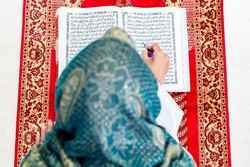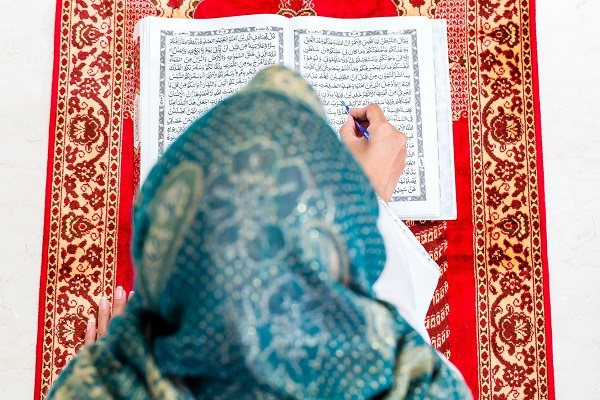Choosing Path of Faith Rooted in Fitrat


Clearly, doing religious rituals and remaining committed to the rules of faith require patience and steadfastness. A religious person, especially one who is with non-religious persons, needs to have more patience and tolerance for fulfilling his religious obligations as he has to tolerate others’ mockeries and laughs.
God says in verses 29-32 of Surah Al-Mutaffifin: “The sinners laughed at the believers and winked at one another as they passed them by. When they returned to their people they returned jesting. On seeing the believers, they said, ‘These people have gone astray.’”
In these verses, the Holy Book refers to four unacceptable behaviors of disbelievers: Laughing, winking, jesting, and accusing believers of having gone astray. Then God says in verse 34 of the Surah: “On the Day of Judgment, the believers will laugh at the disbelievers.” Yes, it would be revealed on the Day of Judgment who is at loss.
Fitart is any feeling or emotion in humans that trainers, teachers, masters or practicing have no role in its creation. It is a constant thing that is there all the time everywhere. These feeling sometimes are also referred to as Ghariza (instinct) but Ghariza is what is common between humans and animals such as feeling of huner and thirst.
The sign of something originating from Fitrat is its universality. For example a mother’s love for her child is Fitri (out of Fitrat) because it is in her nature and no one has taught her to love her child. This love of mother for child is universal and can be seen everywhere and at any time.
Of course some Fitri issues may become weaker of stronger due to some reasons. Sometimes one emotion or one interest may overcome another. For example people are interested in both wealth and health, but their level is not the same in everyone. Some may sacrifice their health for wealth and vice versa. During the time of Jahiliya (prior to the advent of Islam in Arabia) some individuals killed their daughters because they loved their reputation (they imagined having a baby girl undermines it) more than they loved their child.
So it is not always the case that one always remains committed to something that is Fitri because sometimes one Fitrat covers another Fitri thing.
One of the effects of Fitrat is feeling proud. One who treads on the path of Fitrat feels peace and calm. A mother who hugs her child feels proud of herself and criticizes another mother who is unkind to her child. Both of these, feeling proud and criticizing the other, are the effects of Fitrat.
When we say religion is Fitri, it means all the roots and origins of religion are in the Fitrat of every human being. The religion’s principles and rules, ethics, teachings and foundations are compatible with human Fitrat. Human beings, no matter where they are or how old they are, want to know the origin of creation. This is the very root of Tawheed (monotheism).



